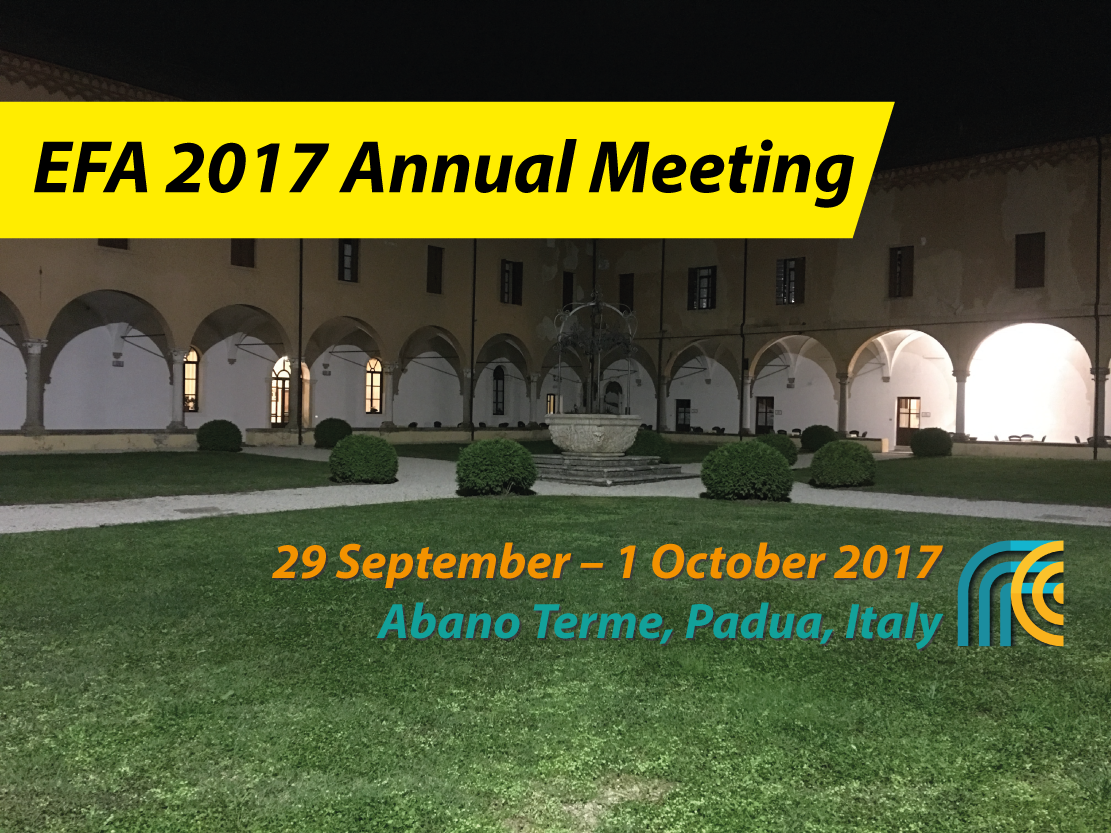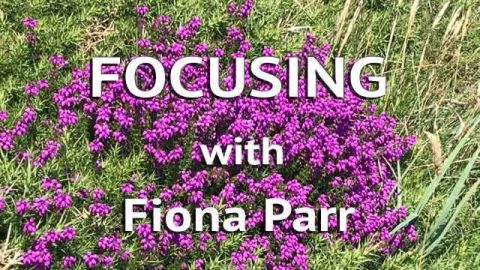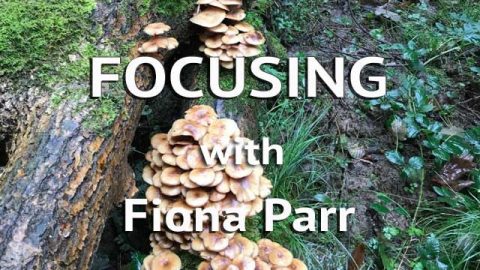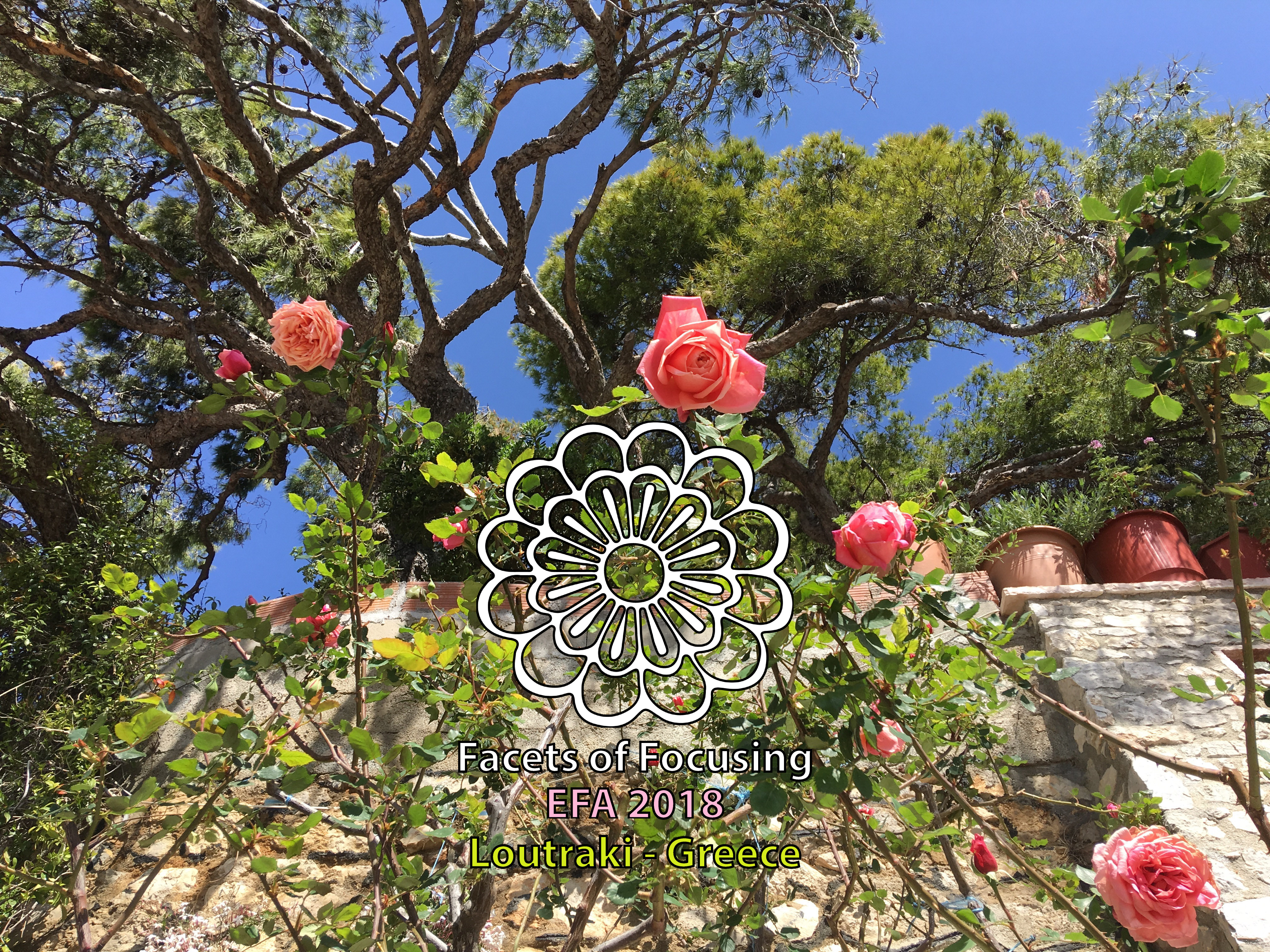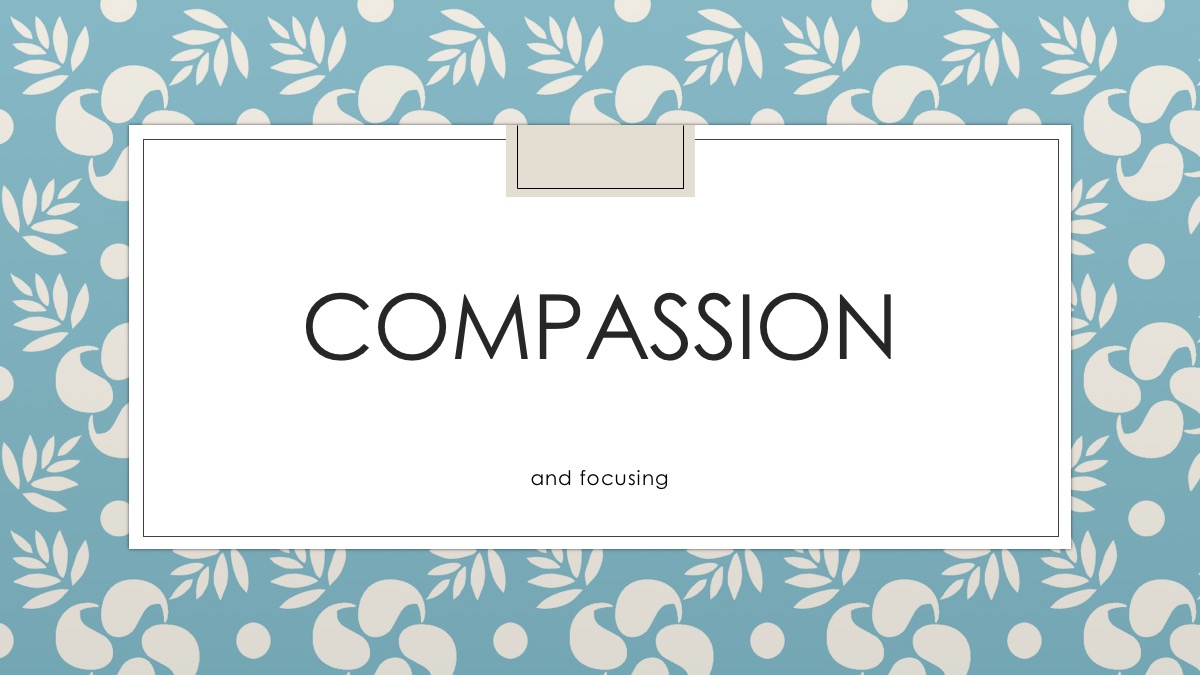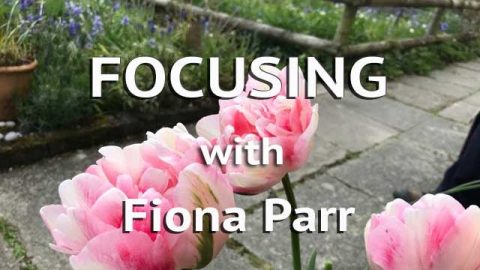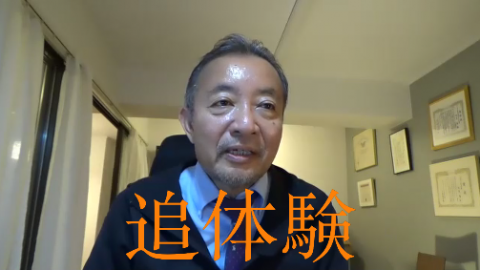πάθη λόγοι ἔνυλοί εἰσιν
Aristotle, De Anima I,1,10, 403a, 25A possible translation could be: Experiences are ‘words’-in-matter.
Or: Sufferings (the word ‘pathos’ is in ‘patho-logy’) are ‘words’-in-matter, in the body.
Sufferings are not just in the body, they are ‘words’-in-the-body.

General Intro
Several of the lecture-style presentations were videoed at the First EFA Conference in Loutraki, Greece (https://efa2018.weebly.com/) and are now being edited for public presentation by Nikolaos Kypriotakis. With the permission of the presenter, Frans Depestele (Belgium) we are happy to share with you EFA members the 2nd video/lecture and to make it available for the benefit of the wider Focusing community.
Video
Lecture/Presentation: A process theory of physical illness: medicine and psychotherapy
Frans Depestele (Belgium)
Contact
Frans Depestele:
e-mail: frans.depestele@skynet.be

1st European Focusing Conference: “Facets of Focusing”
May 10-14, 2018, Loutraki, Greece
https://efa2018.weebly.com/
a European Focusing Association (EFA) event
https://legacy.efa-focusing.eu/

Frans Depestele
I studied medicine and psychiatry at the University of Leuven, Belgium. My interest in psychosomatics brought me to study in-depth the work of Gendlin. Through this my interest in philosophy was awoked and I went back to the university and obtained a master’s degree in philosophy. I work with outpatients in an individual setting and offer them experiential psychotherapy. #
I have published about experiential theory and practice. My main interest in practice is how the therapist concretely intervenes in the sessions. I published some papers on how to integrate focusing into psychotherapy. These papers can be downloaded from the website of The International Focusing Institute; when you search with ‘Depestele’ you will find the 2012, 2013 and 2014 papers. #
My actual interest is a study under the title ‘A process theory of somatic and psychosomatic illnesses: medicine and psychotherapy’.
REFERENCE
The complete manuscript can be downloaded here: A_process_theory_of_physical_illness_Frans_Depestele.pdf
Abstract:
In medicine the body is approached as the body-as-object: observed and treated from outside. Medicine also needs the concept of the body-as-subject, the experiencing body. The body-subject influences the body-object in the processes of becoming ill and of healing. For example, if I have not eaten since a long time I am hungry but a very bad news makes disappear my hunger: meanings overrule the physiological processes. And in reverse, when I have flu a good news may revive my ill body. On this line we can understand how psychotherapy may have positive effects on the physical body, as is shown already in the experiential change step. Research shows that these influences are also demonstrable with serious illnesses. #
The theory of medicine needs to be expanded. The mechanistic approach (units first thinking; old model) cannot explain well living organisms, let alone human beings. A human being is more than tissues that can become ill and can heal. In the first place a human being is a subject that is fully involved in these processes (process first thinking; new model). #
How can both go together? We don’t want to lose the findings of medicine, but at the same time we want to bring in the patient’s experiencing and the healing power which can come from there. In theory as well as in practice good medicine asks for the back-and-forth attitude between the old model and the new model Gendlin is arguing for.



